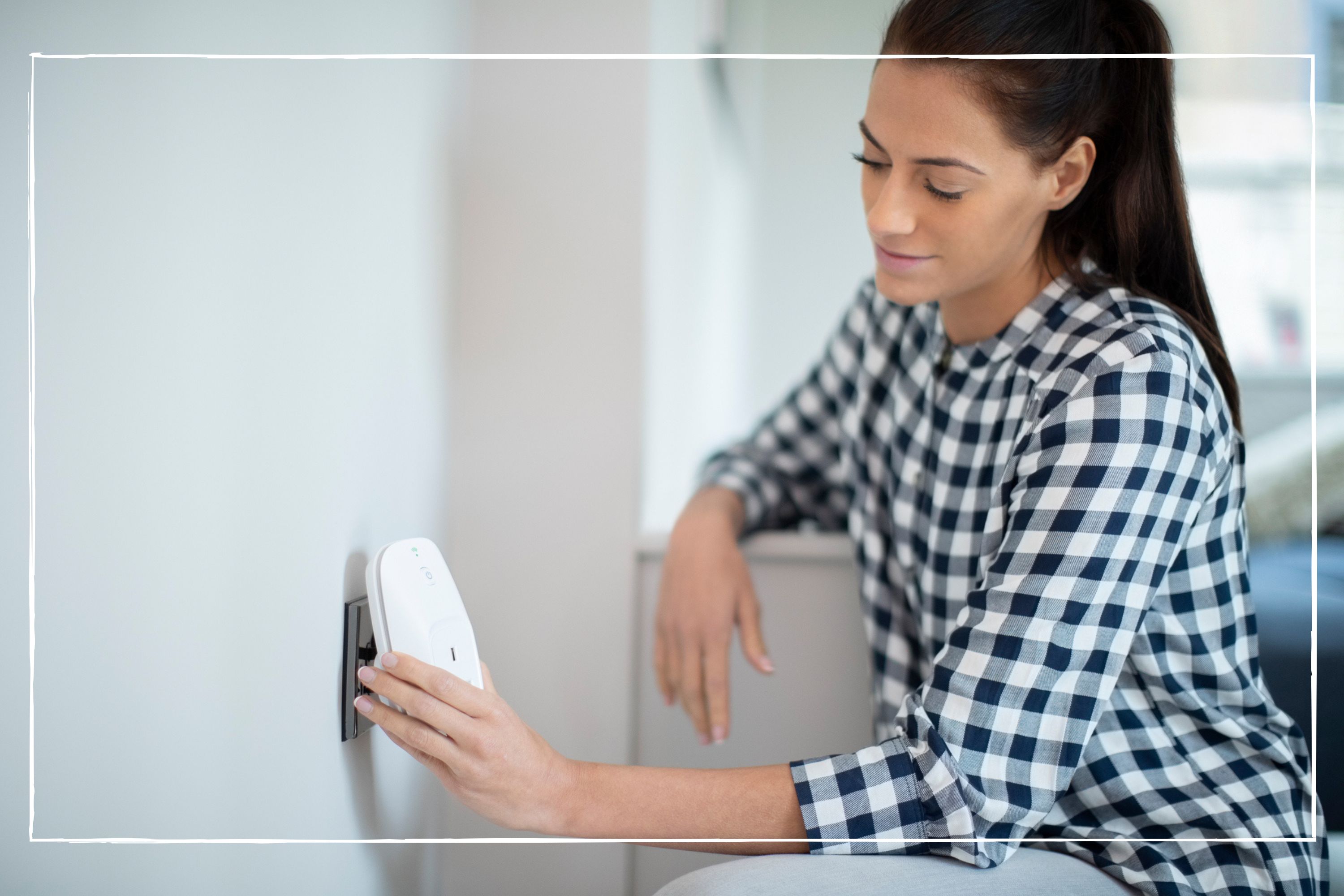
Parenting advice, hot topics, best buys and family finance tips delivered straight to your inbox.
You are now subscribed
Your newsletter sign-up was successful
It's well publicised that smart plugs can help to cut costs, but what is a smart plug and how can it actually save you money?
Smart plugs allow you to control any device or appliance in your home via a smartphone app or smart speaker. But smart plugs aren’t just cool tech – they can monitor the amount of energy devices use too, enabling you to make informed decisions about which appliances to use and how often. By using less energy, you can save money.
The government’s Energy Price Guarantee means that average energy bills based on typical use will be frozen at £2,500, starting from 1 October 2022. Although this is cheaper than the previously announced Ofgem energy price cap, it still means we are paying more for energy than ever before (although the £400 energy rebate will provide some relief until March 2023).
Greg Marsh, CEO and co-founder of cost of living forecast service Nous.co, says: “Smart plugs make our lives significantly easier. Without needing to move, you can control your devices and their energy consumption. You can schedule your usage on certain items for when you are both inside and outside of the house too.
“The plug enables you to become more aware of your usage of energy and the costs that you are facing. Therefore, you save money as you avoid using energy unnecessarily. To be exact, after two years, research shows that the average savings are £52, and with smart plugs starting from as little as £9.99, it could pay for itself twice over in as little as a year. Given the current financial climate, that’s a little that can go a very long way.”
What is a smart plug and what does it do?
A smart plug is an intermediary device between an appliance and an electrical socket. Smart plugs can be single, double or a power strip. By using a smart plug, you can effectively turn a 'dumb' device into a 'smart' one.
Smart devices are everyday items that connect to the internet. You may already use a smart speaker (like Google Home or Alexa) or have a smart doorbell such as Ring or Google Nest.
Parenting advice, hot topics, best buys and family finance tips delivered straight to your inbox.
You plug the smart plug into a wall outlet, then plug your device into the smart plug. You can then control the smart plug – and therefore the appliance – from your smartphone or using a smart speaker.
Smart plugs allow you to turn appliances on and off remotely. For example, you might turn the kettle on while you’re still in bed, or turn the slow cooker on from your office. Some smart plugs also show you how much power a gadget is using, while most can be programmed to turn on and off at certain times.
Can you control smart plugs with your phone?
Smart plugs are controlled by an app on your smartphone or tablet – to do this you’ll need to download the relevant app from Google Play or the Apple App Store.
You’ll also need wi-fi for your smart plug to work. Some smart plugs can store schedules you set up, so these will still work if your wi-fi goes down.
How can using a smart plug help save money?
As well as being a handy gadget, smart plugs can also save you money by reducing the amount of energy you use. Some smart plugs allow you to monitor how much energy a particular device or appliance is using.
Managing director of smart plug manufacturer TP-Link UK, Will Liu says: “Smart plugs with energy monitoring features can let you see how much electricity an individual device is using during a specific time frame. This enables you to make informed decisions about which devices use significant amounts of energy, compared to those that don't.”
Smart plugs also allow you to turn the power off to your devices immediately through an app, or at a predetermined time if they have a scheduling feature. If you're out of the home, you can make sure that all your devices are switched off and are not using any unnecessary energy. Find out the seven most expensive devices to leave on standby.
Head of sustainable living at energy saving specialist SaveMoneyCutCarbon Kirsty Brandon says: “Smart plugs help you to reduce your energy usage because they are a convenient way to ensure your appliances aren’t left on standby.
“Using smart plugs means that you don’t need to go around your house turning off appliances – you can turn all of the appliances off or on from your phone using one app.”
What should you look for when buying a smart plug?
Some plugs require a “hub” to enable the plug to connect to your internet connection. For example, Hive smart plugs need a Hive hub. Other smart plugs work on wi-fi or Bluetooth and don’t require a hub.
You’ll probably want the smart plugs you buy to be compatible with your smart speaker to enable voice control. Most are compatible with Amazon Alexa and Google Assistant – but do check before you buy – while others are also compatible with Apple Homekit.
How much do smart plugs cost?
Single smart plugs start at about £10 per plug, while double smart plugs and power strips cost more, as do smart plugs that allow you to set up schedules or monitor energy use.
Does a smart plug work with any device or appliance?
Any appliance will work with a smart plug as long as it has a physical on/off switch, or turns on as soon as it’s plugged in.
However, smart plugs work best with devices such as:
- lamps
- kettles
- toasters
- slow cookers
- electric blankets.
These devices generally just need to be turned on and off and don’t require programming like, for example, a washing machine does.
Here are some other ways smart plugs can be useful:
Use a smart plug to reduce fire risks
Worried you left your hair straighteners or the iron on? Well, worry no more. If these devices are plugged into a smart plug, you can turn them off on your phone from wherever you are.
This can also be useful if you have inadvertently left a device on charge unnecessarily.
Use a smart plug to improve home security
In the winter months when it gets darker earlier, you might want to turn an inside light on from your phone so you're not walking into a dark house. That's possible with a smart plug that you can control from your phone.
Leaving lights and the TV on to deter burglars while you’re out is also a classic trick – but keeping them on all day will be wasting energy. Using a smart plug means you can turn lamps and your TV on and off remotely if you need to. (To really save on energy costs, leave the lights and TV off while you are out and make sure you have a comprehensive home insurance policy in place so you'll be covered should your home be broken into).
Start your slow cooker going before you head home
Using a slow cooker instead of an oven to cook your dinner can cut your energy usage, but it’s all about timing. With a smart plug, you can fill your slow cooker with ingredients, program the smart plug to turn on at the right time, and then your dinner will be ready when you get home.
Inaccessible plug sockets
Smart plugs can also be handy if a plug socket is in a hard to reach place such as behind furniture – you can turn it on or off via your smartphone.
Heating and cooling
Your radiators will be controlled by your central heating controls, but things like electric heaters, electric blankets and fans can be controlled and scheduled using a smart plug.

Emma Lunn is a multi-award-winning journalist who specialises in personal finance and consumer issues. With more than 18 years of experience in personal finance, Emma has covered topics including all aspects of energy - from the energy price cap to prepayment meter tricks, as well as mortgages, banking, debt, budgeting, broadband, pensions and investments. Emma’s one of the most prolific freelance personal finance journalists with a back catalogue of work in newspapers such as The Guardian, The Independent, The Daily Telegraph, the Mail on Sunday and the Mirror.
